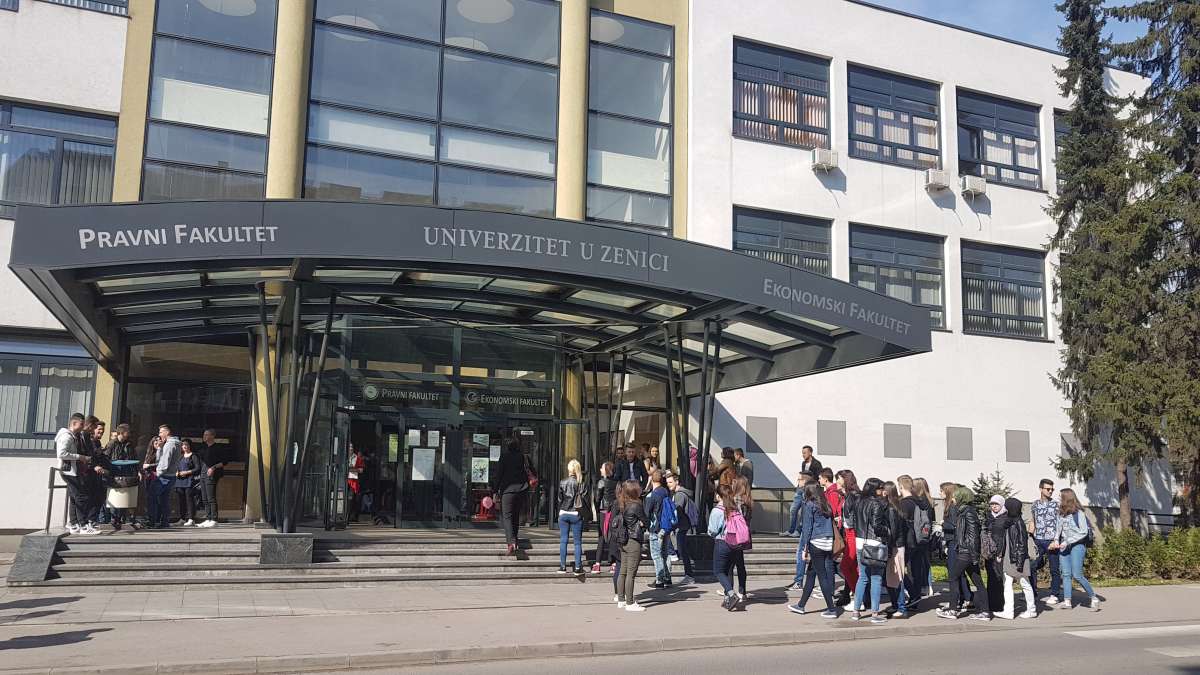The foundation for the decades-long tradition of higher education in Zenica was laid back in 1959, when the Technical High School began operating, which in 1969 grew into the Faculty of Metallurgy. In the same year, the Hasan Brkić Metallurgical Institute was formed in Zenica, which later changed its name, after its long-term director, to the Kemal Kapetanović Metallurgical Institute.
Accelerated economic development of the metal processing industry in those years and the continuous need for staff of various technical professions, in 1973 led to the introduction of new directions at the Faculty of Metallurgy: Mechanical Engineering, Mechanical Engineering and General Mechanical Engineering, which created the conditions for the condi- tions for establishment of the Faculty of Mechanical Engineering in 1977 in Zenica. For decades after their establishment, these faculties were the backbone of higher education in Zenica and the source of numerous professional staff.
The Pedagogical Academy was formed in Zenica in 1994, which years later grew into the Faculty of Philosophy. With the development of new study programs, the Faculty of Metallurgy was transformed into the Faculty of Metallurgy and Materials, and later into the Faculty of Metallurgy and Technology. The post-war period and the need of the economy for the introduction of new study programs and the formation of new faculties, led to the idea of the need to establish the University of Zenica, and it was formed in October 2000.
In the past twenty years, the University of Zenica has taken one of the leading positions among higher education institutions in Bosnia and Herzegovina, as an institution that contributes to the overall progress of the city of Zenica, the region and the entire country through scientific research and teaching. The University of Zenica is one of the eight public universities in B&H and has eight faculties, with corresponding study programs, as follows:
Faculty of Metallurgy and Technology:
First cycle study programs:
- Metallurgy
- Materials: Direction for metallic materials;
- Materials: Direction for non-metallic materials;
- Chemical engineering;
Master's degree:
- Master of Metallurgy
- Master of Metal Materials;
- Master of Non-Metallic Materials;
- Master of Chemical Technology;
Doctoral study: Doctor of technical sciences of a certain scientific field
Faculty of Mechanical Engineering:
First cycle study programs:
- Engineering product design
- Production technology management;
- Engineering ecology;
- Maintenance;
- General mechanical engineering;
Master's degree: Master of Mechanical Engineering
Doctoral study: Doctor of technical sciences in a certain scientific-professional field
Faculty of Philosophy:
First cycle study programs:
- Classroom teaching
- English language and literature;
- German language and literature;
- Turkish language and literature;
- Mathematics and Informatics;
- Bosnian, Croatian, Serbian language and literature;
- Cultural studies;
Master's degree: Master's degree in a specific professional field
Doctoral study: Doctor of social sciences in a certain scientific-professional field
Faculty of Economics:
First cycle study programs:
Company management
Accounting and auditing management;
Master's degree: Master of Economics
Doctoral degree: PhD in Economics
Faculty of Law:
First cycle study program: Law, general direction
Master's degree: Master of Law
Doctoral degree: PhD in Law
Faculty of Medicine:
First cycle study programs:
- General direction of health care (concept 4+1+3)
- General medicine (concept 6 years)
- Master's degree: Master of Health Care and Management
Polytechnic Faculty:
First cycle study programs:
- Civil Engineering
- Manufacturing business, Technologies in metal processing;
- Manufacturing business, software engineering;
- Manufacturing business, Wood processing technologies;
- Manufacturing business, Industrial design of metal products;
- Manufacturing business, Industrial design of wood products;
Faculty of Islamic Pedagogy:
First cycle study programs:
- Islamic religious education
- Social pedagogy;
- Arabic language and literature;
- Preschool education;
Master's degree:
- Master of Religious Education
- Master of Social Pedagogy;
- Master of Preschool Education;
Doctoral degree:
- PhD in humanities of a certain scientific-professional field
- PhD in social sciences in a certain scientific- professional field.
Existing study programs profile experts in various fields and in accordance with the needs of the labor market.
